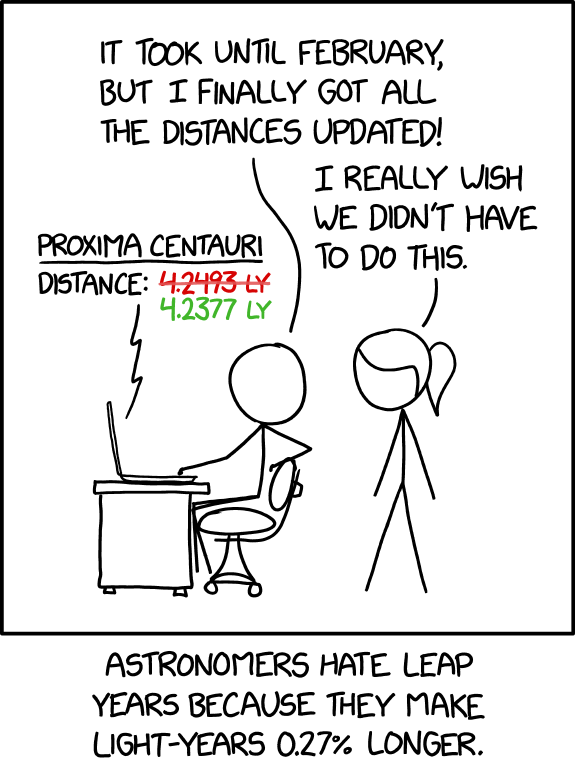this post was submitted on 22 Feb 2024
876 points (98.8% liked)
xkcd
9346 readers
11 users here now
A community for a webcomic of romance, sarcasm, math, and language.
founded 2 years ago
MODERATORS
you are viewing a single comment's thread
view the rest of the comments
view the rest of the comments

Interestingly, Wikipedia says they actually did base it on 365.25 instead of the actual 365.2425, so you’re technically right.
I don't think that is what Wikipedia says. Whatever one's thoughts on Wikipedia, I'm pretty sure it is getting this right.
365.25 is what you get if you have leap years every four years with no exceptions. This is what was done in the Julian calendar which was used in the Christian world some centuries ago (how long exactly depends on what part of the Christian world).
365.2425 is the average year length in the Gregorian calendar which we use (where leap years are 1592, 1596, 1600, 1604, 1608, ... 1692, 1696, 1704, 1708, ..., 1792, 1796, 1704, 1708, ..., 1892, 1896, 1904, 1908, ... 1992, 1996, 2000, 2004, 2008, ..., 2092, 2096, 2104, 2108, ...).
The actual average solar year is better approximated by the latter than the former, but it is still slightly off.
This seems pretty definitive to me:
That is pretty much what I said. I was irritated by your wording "the actual 365.2425", which is just another approximation of the "actual" solar year.
Ah, gotcha, yeah fair enough, I could have said “more accurate”